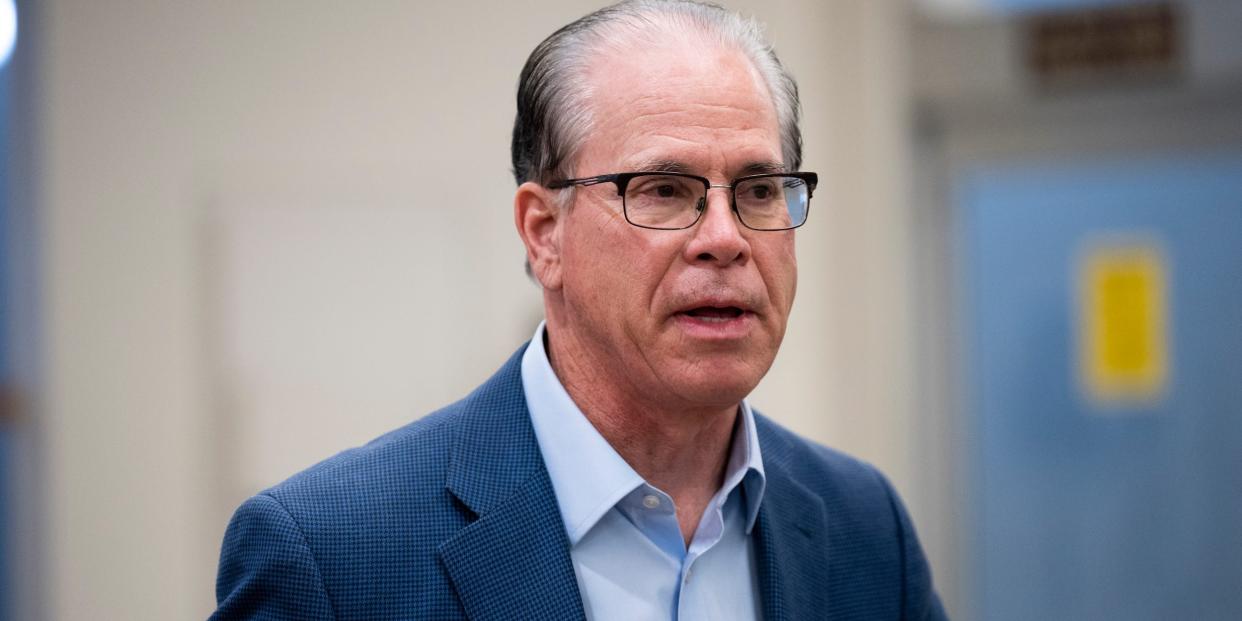Republican Sen. Mike Braun suggests the Supreme Court shouldn't have legalized interracial marriage before backtracking

- Oops!Something went wrong.Please try again later.
Mike Braun questioned whether the Supreme Court should have legalized interracial marriage.
Braun told reporters that it would be "hypocritical" for conservatives to suggest that justices should stay out of abortion but not other areas too.
His suggestion dovetails with some conservatives' long-held beliefs that states should decide key civil rights questions.
Republican Sen. Mike Braun suggested on Tuesday that the Supreme Court errs when it authors sweeping rulings that federalize certain issues, even when that includes widely-embraced precedent like Loving v. Virginia, the landmark 1967 decision that overturned state laws banning interracial marriages.
"When it comes to issues, you can't have it both ways," Braun, who is from Indiana, told Dan Carden at The Times of Northwest Indiana when asked about his views during a call with reporters. "When you want that diversity to shine within our federal system, there are going to be rules and proceedings that are maybe going to be out of sync with what other states would do. It's the beauty of the system and that's where the differences among our 50 states in points of view ought to express themselves."
Braun was initially asked whether the current Supreme Court would be practicing "judicial activism" if it overturned Roe v. Wade later this summer. He repeated the long-held conservative belief that the Supreme Court went too far in its 1973 decision and that some issues are best left up to individual states, adding that it would be "hypocritical" for conservatives to suggest otherwise.
"You're not going to be able to have your cake and eat it too," Braun said when prompted on whether he was questioning the Loving ruling, which was unanimous.
He was also asked about Griswold v. Connecticut, a landmark 1965 Supreme Court decision related to a state ban on the use of contraceptives.
"You can list a whole host of issues when it comes to whatever they are — I'm going to say they aren't going to all make you happy within a given state, but that we're better off having states manifest rather than homogenizing it across the country as Roe vs. Wade did," Braun added.
Later on Tuesday, Braun released a statement saying he "misunderstood" the reporter's questions and instead said there's "no question that the Constitution prohibits discrimination of any kind based on race."
"Earlier during a virtual press conference, I misunderstood a line of questioning that ended up being about interracial marriage," Braun said, adding that he condemns "racism in any form."
Braun's point is also in line with how many Republicans wanted to treat same-sex marriage, preferring that voters in each state get a chance to weigh in as opposed to a making it a federal right. The expression of this view can often lead to some uncomfortable realities as states have often restricted civil rights. The Jim Crow era is named for the numerous local and state laws that allowed for racial segregation.
As recently as 1998 both Alabama and South Carolina still had laws on the book that would make interracial marriage illegal, The Washington Post reported. Loving v. Virginia struck down such restrictions but in a world without such a decision those laws could very well have been enforced.
Read the original article on Business Insider

